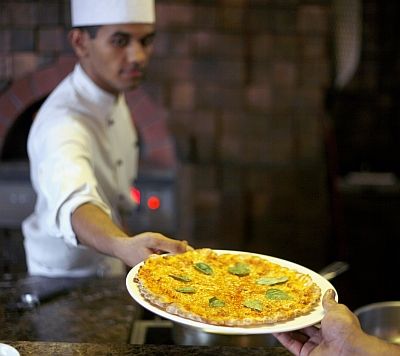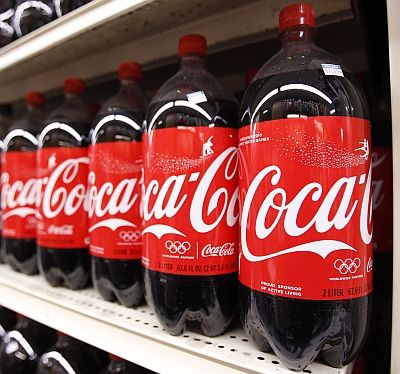 Should junk food be sold in Indian schools?
Should junk food be sold in Indian schools?
Dinesh C Sharma on the Delhi high court case, the outcome of which will impact millions of school children in urban areas throughout the country
In the long list of key public issues that await judicial pronouncements is also the question of a ban on selling junk food in Indian schools.
This is an important piece of public interest litigation, the outcome of which will impact millions of school children and their parents in urban areas throughout the country.
Last week, this case in the Delhi high court reached a turning point when a set of guidelines on junk food in schools were proposed by the government.
The question of selling products like colas, potato chips, noodles and French fries in schools may sound a trivial issue, but is indeed a complex one that even developed countries like the United States are grappling with.
The petition filed by the Delhi-based Uday Foundation wants the government to 'immediately ban junk food and carbonated drinks in schools' and 'to initiate measures to discourage the availability of "fast food," unhygienic food and foods with unhealthy ingredients within 500 yards of schools.'
In addition, steps need to be taken to 'develop a comprehensive school canteen policy, which emphasises healthy nutrition among school going children.'
Another prayer is to ban junk food and carbonated drinks advertisements in media including television.
Over-consumption of processed food rich in saturated fats, salt and sugar are known to increase risk of child obesity, a precursor to diabetes and heart disease in adulthood.
Such food is not only unhealthy, but is also addictive and discourages kids from making healthy choices.
As it is, India has a high burden of lifestyle diseases, particularly diabetes and heart disease.
By letting young kids get addicted to junk food, we may be raising a generation prone to severe ailments in future.
 Let’s see why this petition is so significant. This is the first time someone is seeking a ban on the sale of a set of food products to a sizeable chunk of population on health grounds.
Let’s see why this petition is so significant. This is the first time someone is seeking a ban on the sale of a set of food products to a sizeable chunk of population on health grounds.
By seeking a ban on sale of such food products in and around schools and a ban on their advertising, the petition virtually equates junk food with tobacco products because only they face similar restrictions at present.
The equation of junk food with tobacco is supported by scientific evidence generated by epidemiologists and public health experts globally.
It has been found that junk food manufacturers or Big Food companies are using some of the same marketing techniques as tobacco industry did to lure young customers before restrictions were imposed.
By permitting outlets of food chains in schools and selling of their branded stuff in schools, we may be unwittingly becoming a part of corporate strategies of food giants to cultivate young customers.
Exposing kids to their products is crucial for food companies, but is dangerous for health of our children.
Brand recognition starts in early childhood and kids who recognise multiple brands by the age of four years are more likely to eat unhealthily and be overweight, research has shown.
The stakes in the litigation, therefore, are too high for the food industry. No wonder, processed food manufacturers have got themselves impleaded in the case.
The way the proceedings in the court have gone on in the past two years clearly indicates that the government (represented by the ministry of health) is not serious about taking any decisive steps on junk food in schools.
When the court asked it to prepare draft guidelines on restricting junk food in schools, the government handed over the task to the Food Safety and Standards Authority of India, FSSAI, instead of a more qualified agency like the National Institute of Nutrition or the Nutrition Foundation of India.
The FSSAI, which has constantly being criticised for siding with the food industry instead of acting as an independent regulator, hired market research firm AC Nielsen to prepare the guidelines.
It remains a mystery why a market research firm was hired for a task which should have been handled by scientists and nutritionists.
Among other things, Nielsen has conducted annual surveys for food giants to promote their products like soupy noodles -- precisely the kind of products the Uday Foundation petition is seeking to ban in schools.
 The draft guidelines presented in court are a godsend for the food industry.
The draft guidelines presented in court are a godsend for the food industry.
Instead of suggesting ways of restricting availability of junk food in schools, the FSSAI and Nielsen have sought to legitimise junk food products.
The most shocking is the very definition of junk food.
Cleverly, the report has sought to differentiate between ‘junk food’ and ‘fast food’.
If one goes by the definitions used in the report, noodles, burgers, pizzas, chips, sandwiches are not to be placed in the category of ‘unhealthy/junk food’, but they are to be considered ‘fast food’.
Not just this, there is another category of foods defined as ‘instant foods’ -- obviously created to fit in instant or cup noodles.
So if the court bans sale of junk food -- as sought in the petition -- school canteens could still sell noodles, burgers, pizzas, chips and so on because according to the government guidelines proposed in the court, they are either ‘fast food’ or ‘instant food’, but certainly not ‘junk food.’
The report cleverly passes the buck to schools and parents. It suggests that schools should include health education in the curricula and explain to children the importance of balanced nutritional diets and the need for physical activity. It also has some homilies for parents.
Then there are long sections on the importance of hand washing, how to maintain hygiene in school canteens and so on.
The FSSAI/Nielsen report is silent on the role of food companies and marketers or ways to restrict their products in schools.
One wonders why the food regulator wasted tax payers’ money (we don’t know how much) on getting this report done when excellent, science-based recommendations are available from the World Health Organisation, the Nutrition Institute of India and civil society groups like the Centre for Science and Environment and the Consumer Education and Research Centre.
On several occasions, WHO has clearly stated need for restricting junk foods in school. The latest report issued in June 2013, has called for 'tighter controls on the marketing to children of foods high in saturated and trans fats, free sugars and salt, in order to fight childhood obesity.'
Children are surrounded by ads urging them to consume foods high in fat, sugar and salt, even when they are in places where they are supposed to be protected such as schools and sports facilities, it said.
WHO feels that tightening restrictions on marketing is the key because marketing of unhealthy food to children has been proven to be disastrously effective.
While adults know when they are being targeted by advertising, children cannot distinguish between advertisements and cartoons, making them vulnerable to messages that lead to unhealthy choices, the report says.
The choice is left to you -- whether to go by robust research-based recommendations of bodies like WHO or by a report prepared by a biased food regulator and its paid marketing associate.
Dinesh C Sharma is a science journalist based in New Delhi.









 © 2025
© 2025